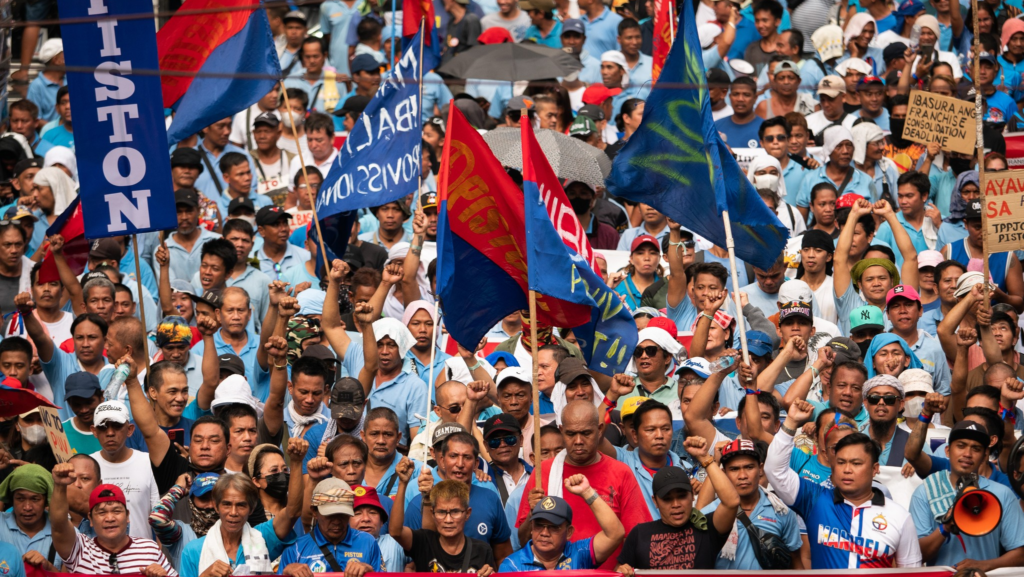
The Office of the Solicitor General (OSG), representing the DOTr and LTFRB, claimed that the PUV modernization program (PUVMP) and its related issuances are aimed at fulfilling the country’s commitments to reduce greenhouse gas emissions, in response to the Supreme Court petition filed by PISTON in December 2023.
However, these agencies did not explain how the mandatory franchise consolidation component of the PUVMP and its deadlines is in any way relevant to achieving the country’s climate targets.
The DOTr and LTFRB order to consolidate franchises by the end of January only to be eventually handed over and operated by large business transport cooperatives or corporations with the financial capacity to procure at least 15 minibuses per route has nothing to do with any climate commitments. It only exposes small operators and drivers to further displacement and makes our public transport more susceptible to corporate hijack.
Even the former UN special rapporteur for climate change, Ian Fry, who recently visited the country in November last year has taken note of the PUVMP and its anti-worker policies. In his 11-page report, the former UN expert urged the Philippine government to “formulate a just transition policy for all climate change-related initiatives” and ensure a just transition in transport across supply chains to protect workers’ right to decent work.
The OSG’s response and the pro-PUVMP transport groups’ attempt to block our petition revealed the Marcos government’s true agenda in pushing for the PUVMP: to cancel the franchises of small operators and deprive thousands of informal PUV transport workers of their livelihoods, while allowing local crony corporations and multinational banks like the World Bank and the Asian Development Bank to profit from privatizing public transport programs through massive loans and capital cash flows.
Franchise consolidation is not necessary to improve the public transportation system. We can modernize and upgrade our crumbling public transport infrastructure without violating the transport workers’ right to decent work. A pro-people, worker-led just transition in public transport can achieve a truly efficient, sustainable, and progressive public mass transport system, unlike a haphazard profit-motivated modernization program that is actually a “marginalization” program.